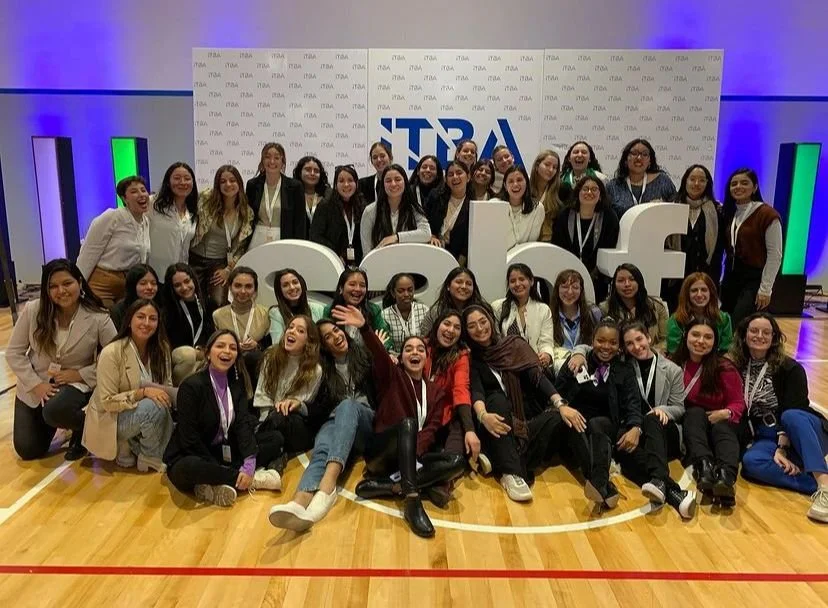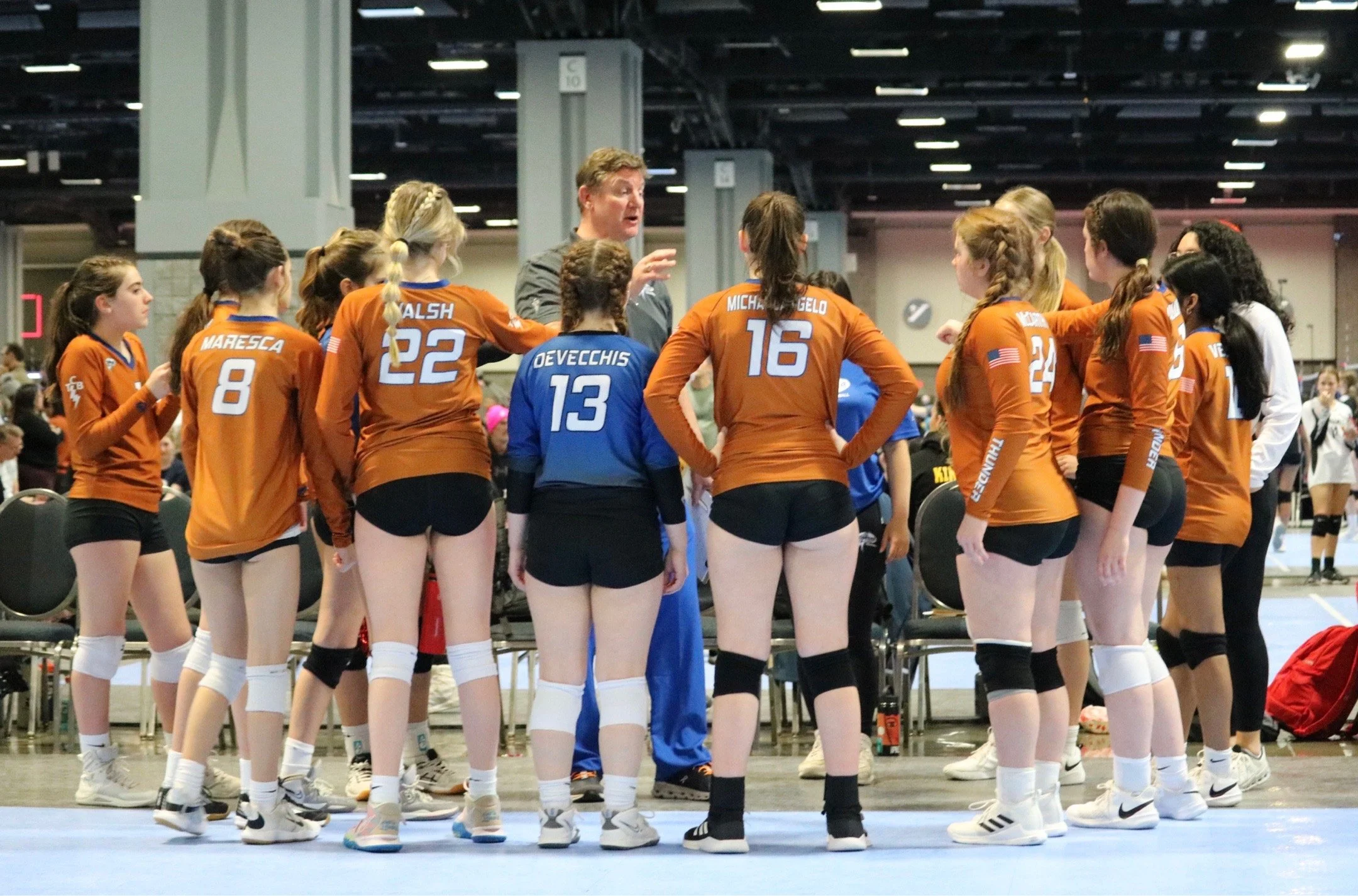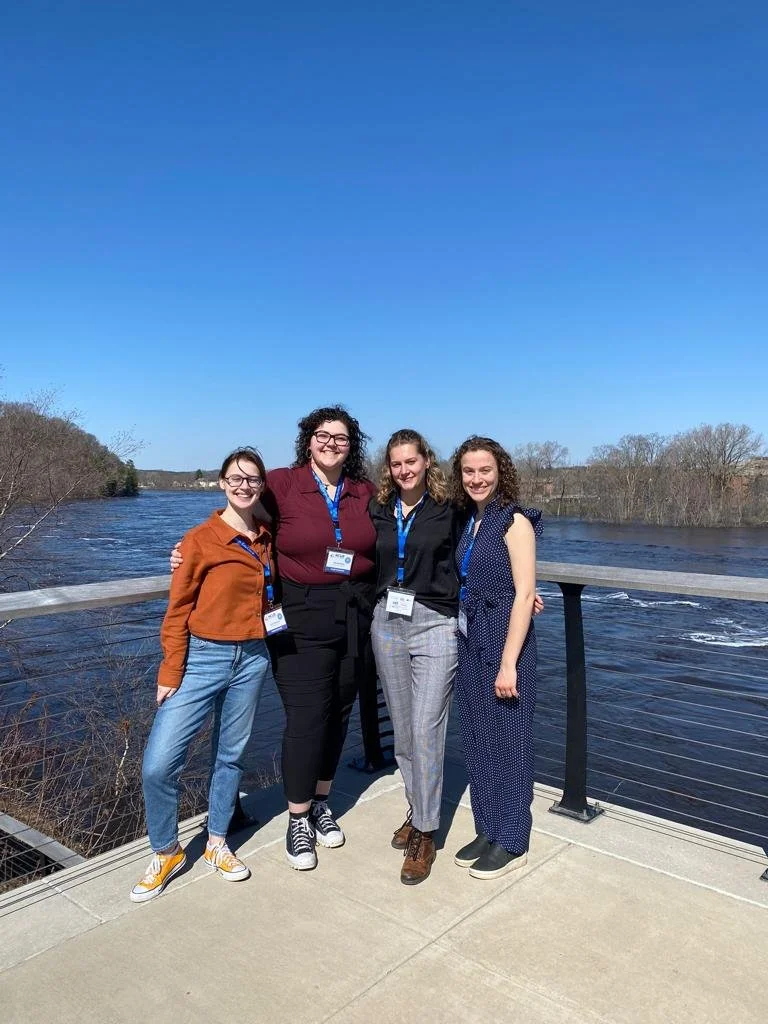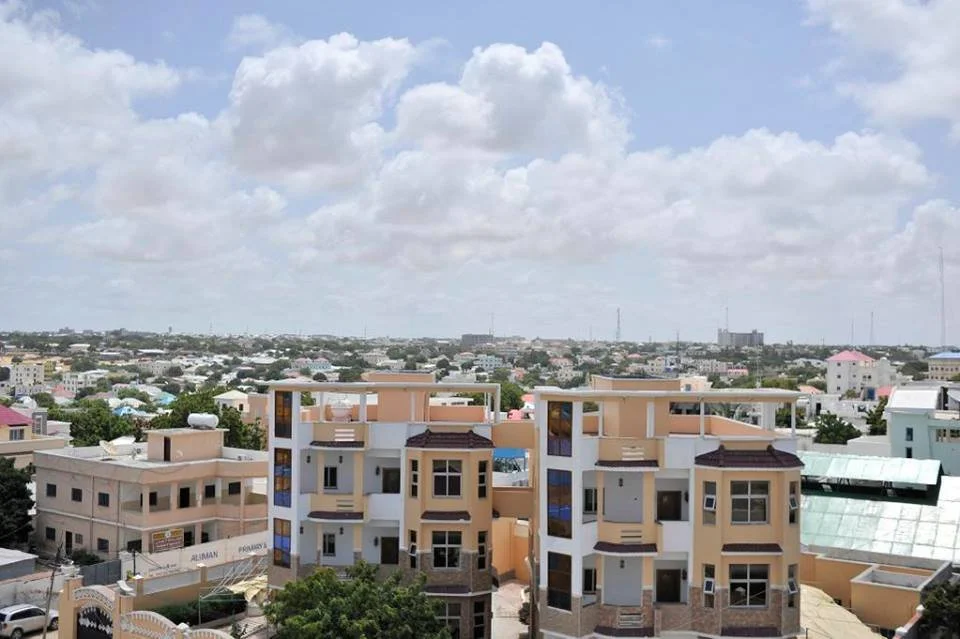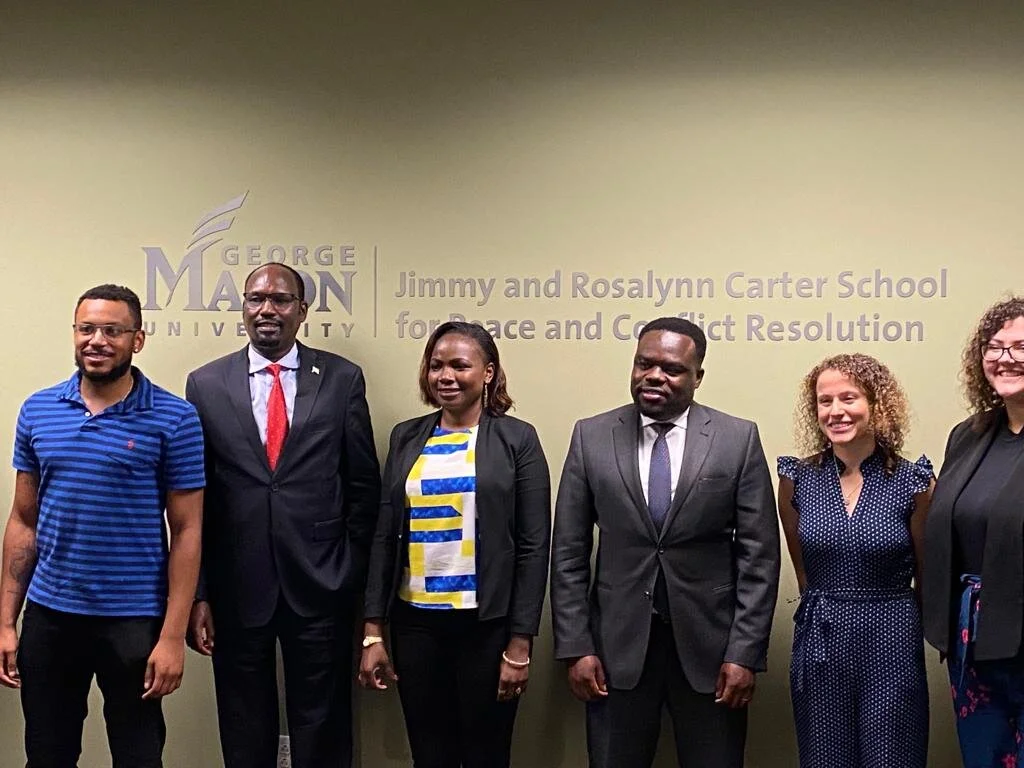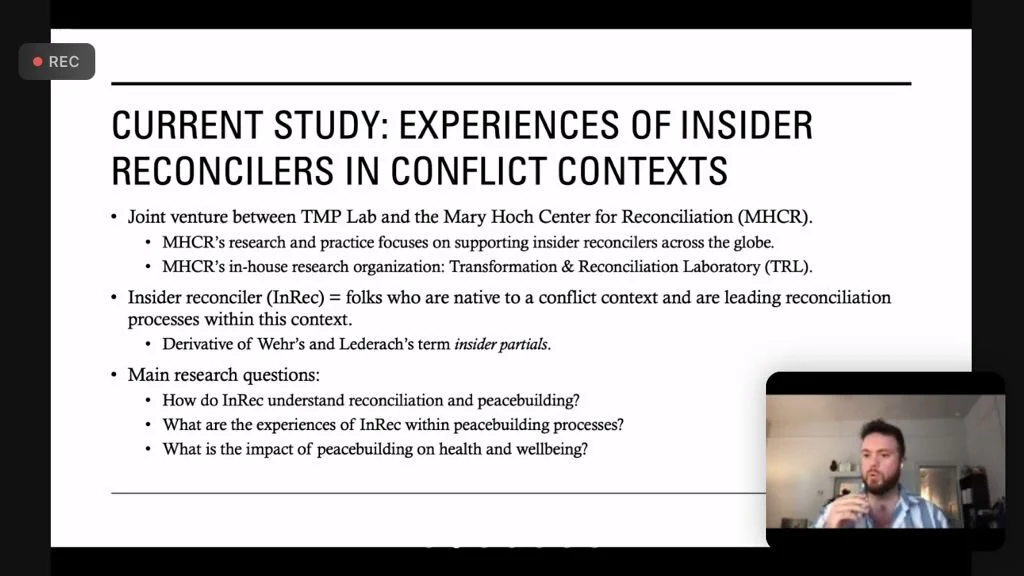Dr. Tecla Namachanja Wanjala is a globally recognized peace practitioner with over 30 years of experience. Formerly she was Vice and Acting Chairperson of Kenya's Truth Justice and Reconciliation Commission (TJRC) and was subsequently included in the 1,000 Women jointly Nominated for the 2005 Nobel Peace Prize.
First MHCR Event of the Academic Year: Healing Social Divides in Kenya
On Friday, September 3rd, MHCR held our first in-person event since 2019: “Healing Social Divides in Kenya”, hosted in Founder’s Hall at the Arlington Campus of George Mason University. MHCR invited three delegates from the National Cohesion & Integration Commission (NCIC) in Kenya: Vice-Chair Wambui Nyutu and Commissioners Sam Kona and Dr. Danvas Makori to participate in a panel, moderated by MHCR Communications Officer and Carter School graduate student, Cam Cassar.
MHCR Staff Participates in the Carter School's Fall 2021 Peace Week
Monday, September 20th, 2021, marked the official start of Peace Week Fall 2021 at the Jimmy and Rosalynn Carter School for Peace & Conflict Resolution.
Peace Week serves as an opportunity to engage in conversations regarding the ever-changing field of peacebuilding in an ever-changing world. The pandemic shed light on a number of ongoing issues within the global society; the pandemic also gave us a chance to step back, take a deep dive into issues of injustice and inequity, and decide how we want to move forward as a world. The theme of this year’s Peace Week is “Recovering Better for an Equitable and Sustainable World”.
A New Way of Thinking
On May 19th MHCR hosted the last event of the MHCR Spring Webinar Series “Knowing Us, Knowing Them: Applying the Neuroscience of Group Dynamics to Reconciliation and Peacebuilding” in collaboration with Beyond Conflict.
The goal of this event was to explore the intersection of neuroscience and peacebuilding as well as discuss the roles of threat and empathy in understanding some of the breakdowns between individuals and communities. The panelists included renowned neuroscience researchers and peacebuilding practitioners as they engaged in dialogue regarding this nexus.
Embracing the Wisdom of Indigenous Communities in Truth and Reconciliation Processes
Creating space to acknowledge the harms of the past, share truth, and collectively heal is essential to overcoming injustices against Indigenous communities and fostering transformation towards a just society that recognizes indigenous peoples’ rights. However, navigating harms of the past, and their continuing legacies today is not an easy process.
The Power and Possibility of Forgiveness
When we think about what it takes to foster social transformation, the complex roles of apology, repentance, and forgiveness are often overlooked or used in a way that can be harmful to a process. On April 14th, the Mary Hoch Center for Reconciliation held the third event in our spring webinar series “The Role of Apology, Repentance, and Forgiveness in Social Transformation”. The goal of this webinar was to learn from global experiences to inform current political forgiveness efforts towards racial justice, transformation, and healing in the United States.
Paving the Way for Healing
Trauma affects every individual in unique ways, and the peacebuilding field must better understand how integral trauma healing is for bridging societal divides. On March 17th, the Mary Hoch Center for Reconciliation (MHCR) held the second event in our webinar series, Understanding the Role of Trauma in Truth, Reconciliation, and Peacebuilding Processes. The goal of this webinar was to explore how trauma impacts efforts to bridge societal divides and what it means to take a trauma-informed approach within this work.
MHCR Webinar Series Presents: The role of Apology, Repentance, and Forgiveness in Societal Transformation
On Wednesday, April 14th, the Mary Hoch Center for Reconciliation will be co-hosting the third event in our Spring Webinar Series: The role of Apology, Repentance, and Forgiveness in Societal Transformation alongside Religions for Peace from 10:00 AM-11:30 AM EST. At this event, you will have the opportunity to listen to agents of change from around the world who have been involved in and/or studied political apologies and social repentance efforts. This event will be separated into two panels.
Peace Week at the Carter School
On March 23rd, MHCR Director Antti Pentikainen and MHCR Distinguished Research Affiliate,Dr. Fanie du Toit will be participating in the Carter School’s Spring 2021 Peace Week. The theme of this year’s Peace Week is peace and anti-racism in the US and around the world and will serve as an opportunity to bring together the Carter School community to engage in dialogue on how we can foster an anti-racism approach in conflict resolution practice and scholarship while highlighting these efforts both domestically and globally.
A Time to Heal
What does it mean to heal? What would it look like for our societies to move towards individual and collective healing in the United States right now? These questions helped guide the first event in a recently launched discussion series on Bridging Societal Divides, hosted by MHCR in collaboration with the USTRHT Movement.
